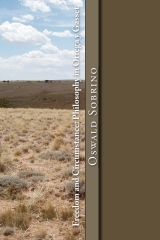 For me, poets and philosophers are like cake and ice cream: they go together. Both wed disparate elements of reality, sometimes explosively, always in startling ways. Both go beyond the words to a place bone deep. When I read or listen to them, my eyes pop. My mouth goes all WOWy. My spirit is cleansed, refreshed, and I’m able to write on. You might say that, like cake and ice cream, poets and philosophers are important human resources.
For me, poets and philosophers are like cake and ice cream: they go together. Both wed disparate elements of reality, sometimes explosively, always in startling ways. Both go beyond the words to a place bone deep. When I read or listen to them, my eyes pop. My mouth goes all WOWy. My spirit is cleansed, refreshed, and I’m able to write on. You might say that, like cake and ice cream, poets and philosophers are important human resources.
Take Ortega y Gasset, an influential twentieth-century Spanish philosopher. That’s all I remembered about him from a course I took on existentialist writers many years ago.
Then I picked up Oswald Sobrino’s Freedom and Circumstance, a small, unassuming and very readable ebook with a powerful title and a profound grasp of his subject. Despite its relatively short length, it is a thorough introduction to the philosophy and significance of Ortega y Gasset (1883-1935) and a very interesting read. Sobrino gives us Ortega with a clarity of thought and in words that are simple enough for even a neophyte like me to understand.
Freedom and Circumstance elucidates Ortega’s methodology, his philosophical tenets, his significance for the modern age and our time. The book focuses on the basics of Orteguian philosophy, translating into English Ortega’s beautifully written Spanish and making copious use of footnotes that, surprisingly, are a delight to read.
Freedom and Circumstance examines the Ortega y Gasset’s early influences, especially the German philosophers, Ortega’s departure from Descartes and subjective Idealism, and Ortega’s most important works. These include “What Is Philosophy?” a seminal work of the twentieth century published in Madrid, Spain (1929) where Ortega was born, taught, and died. Madrid, Sobrino reminds us, is at “the heart of Spain and on the edge of Europe, both physically and culturally.”
For me a memorable part of the book was Sobrino’s reminder that Ortega did not have a philosophy or hold to a set of philosophical beliefs. Rather, Ortega was a philosophy, that philosophy for him was “a making in oneself a place and a space where the Universe can be known and known again.”
The author also reminds the reader of Ortega’s meaning of word, circumstance “. . . as crucial to our self-identity.”
Another personal favorite in this book was the picture Sobrino painted of Ortega teaching on a quiet morning in a sunlit park in Madrid at the turn of the twentieth century, lecturing to a rapt audience of students.
This kindle ebook has 1070 locations. That’s about the size of a novella.* Whatever its size, I highly recommend the book. It is a bargain at 99¢, and gave this reader many Eureka Moments.
About the Author: Oswald Sobrino holds an M.A. in Theology, an M.A. in Economics, and a Juris Doctor degree. He is fluent in Spanish and teaches biblical studies and Latin. Philosophy was one of his undergraduate majors—and his favorite. Madrid, Spain, the home of José Ortega y Gasset, is his favorite city. Like Ortega, he received a Jesuit education. Sobrino has ten books for sale on Amazon, including Freedom and Circumstance.
*A “location,” Amazon tells us, is 128 characters, smaller than a 140-character-Tweet. A location contains about 25 to 28 words, depending, of course, on the number of spaces between the words. So there are, very roughly and ballpark speaking, somewhere between 22,000 to 30,000 words in Freedom and Circumstance, making it the size of a novella.
Links
Blog: LOGOS
Get an Editorial Review | Get Amazon Sales & Reviews | Get Edited | Get Beta Readers | Enter the SPR Book Awards | Other Marketing Services






















Leave A Comment